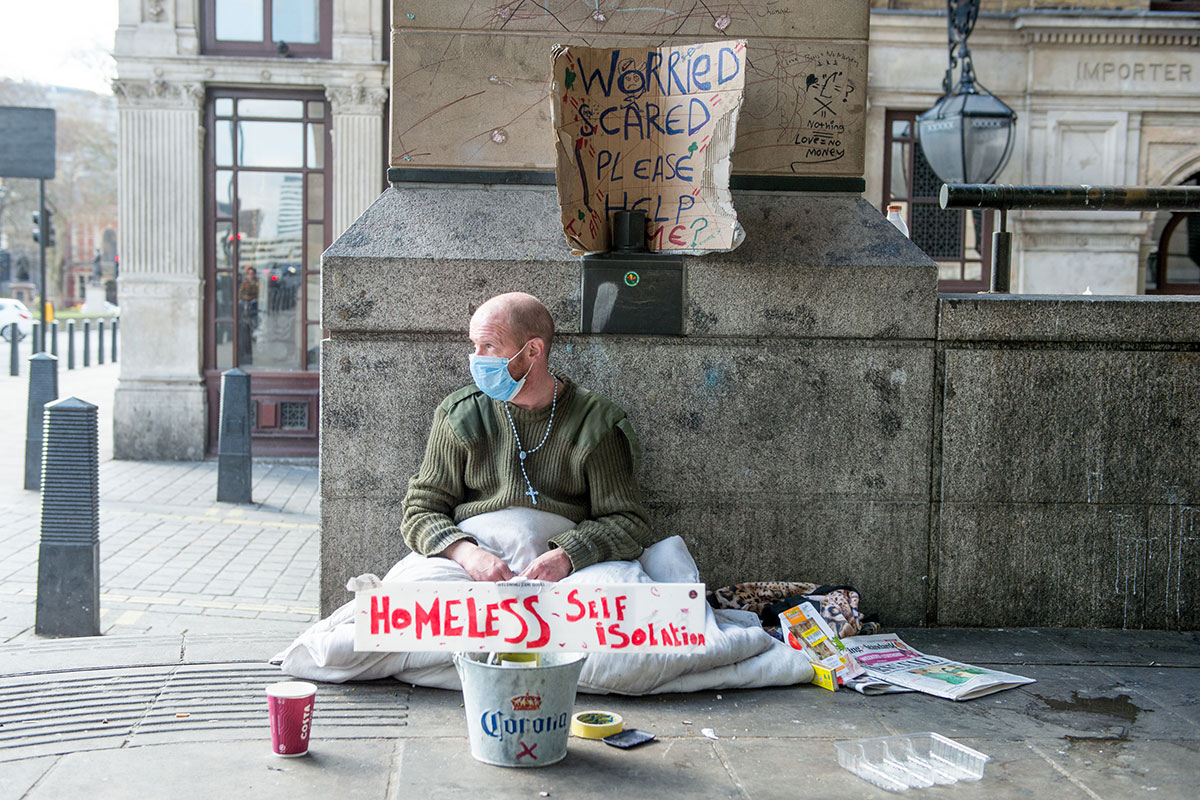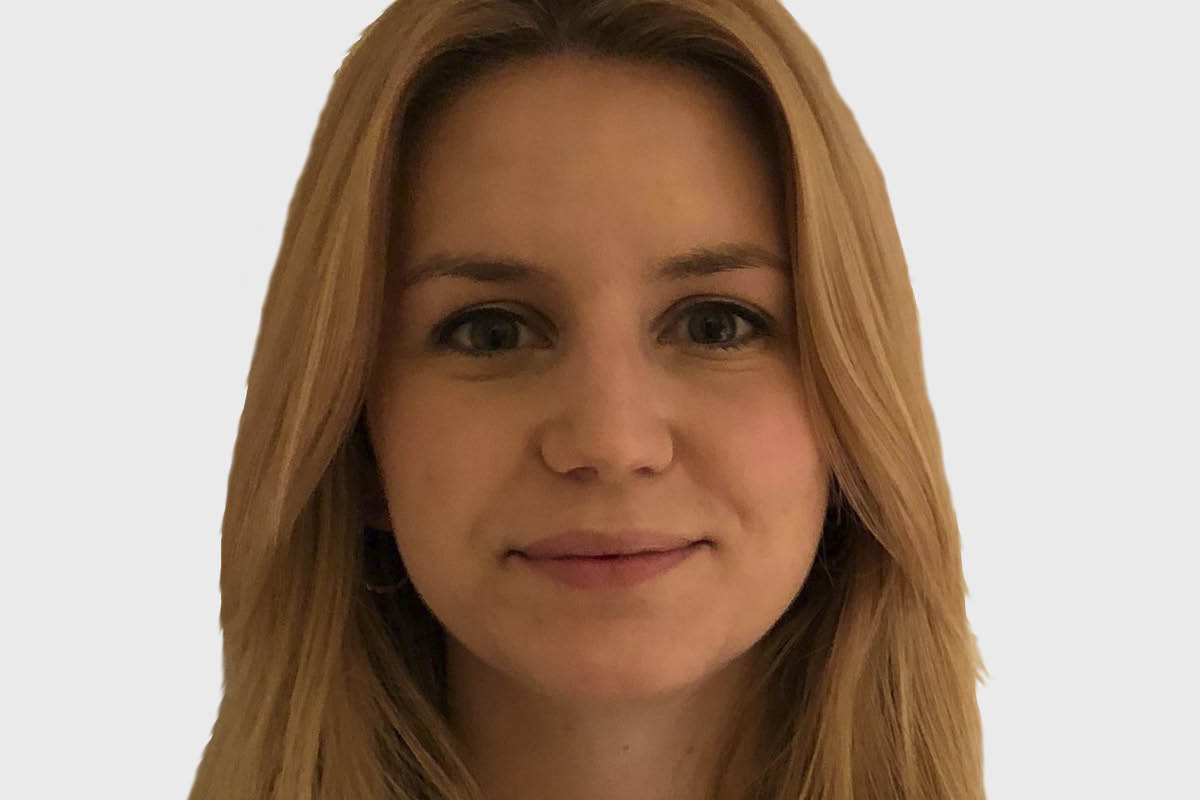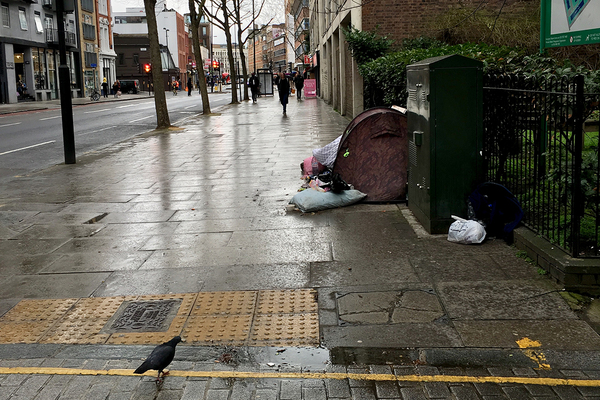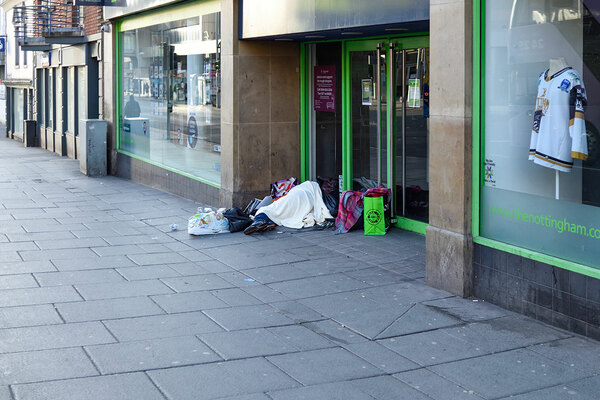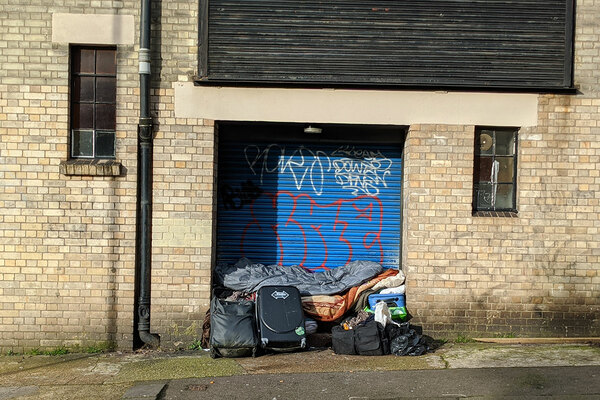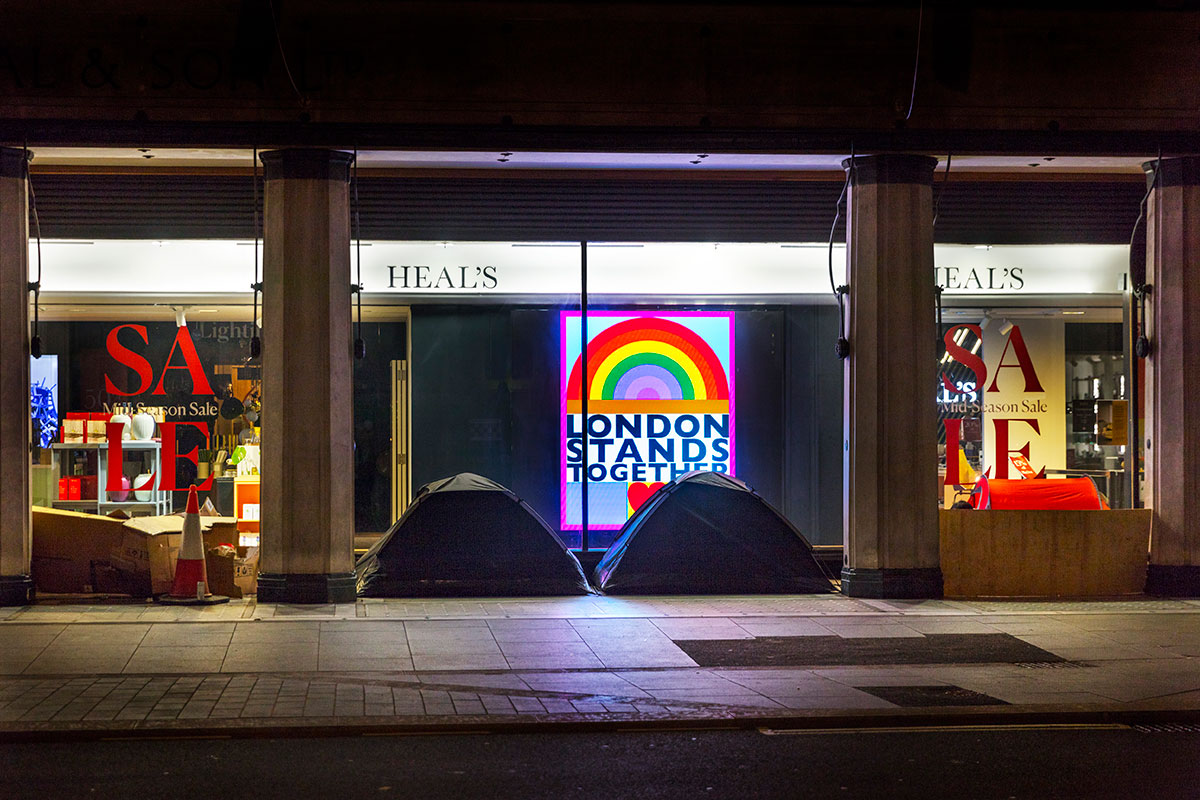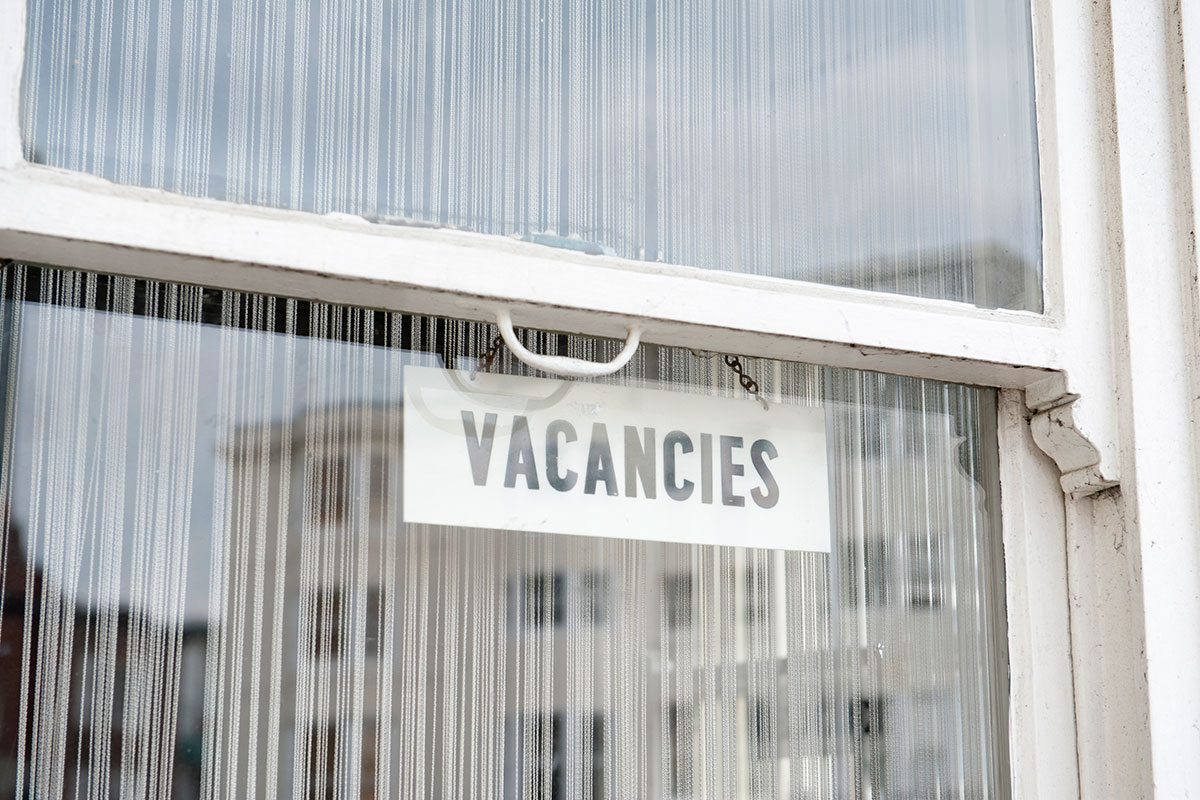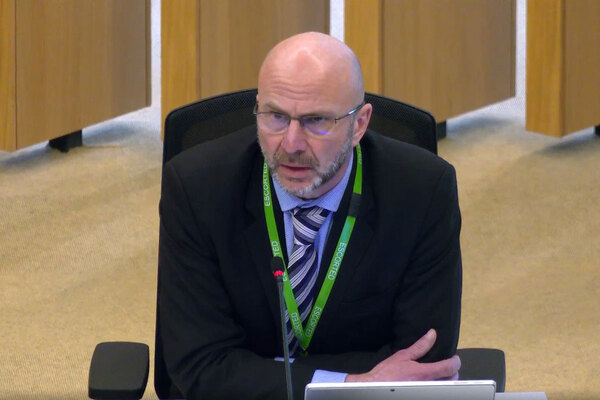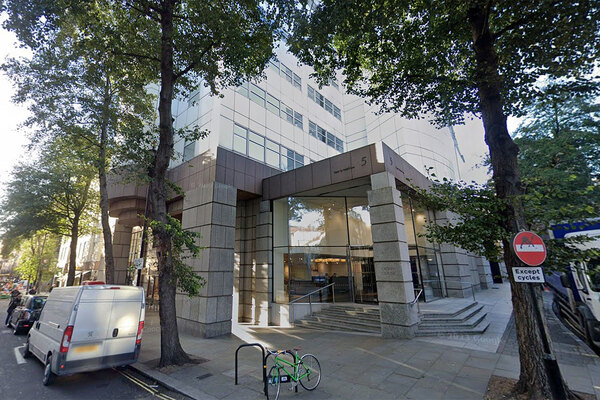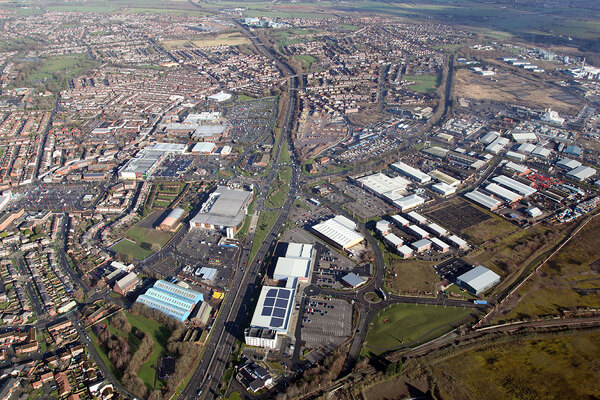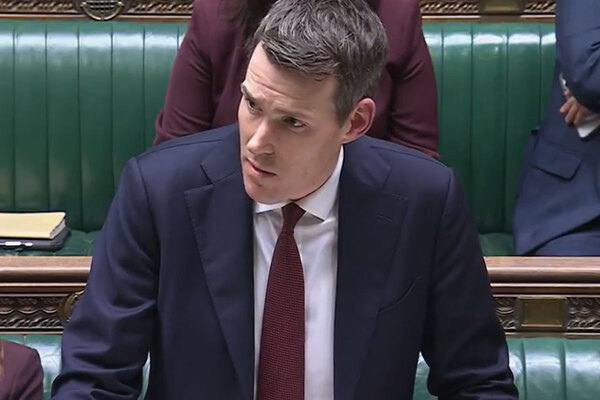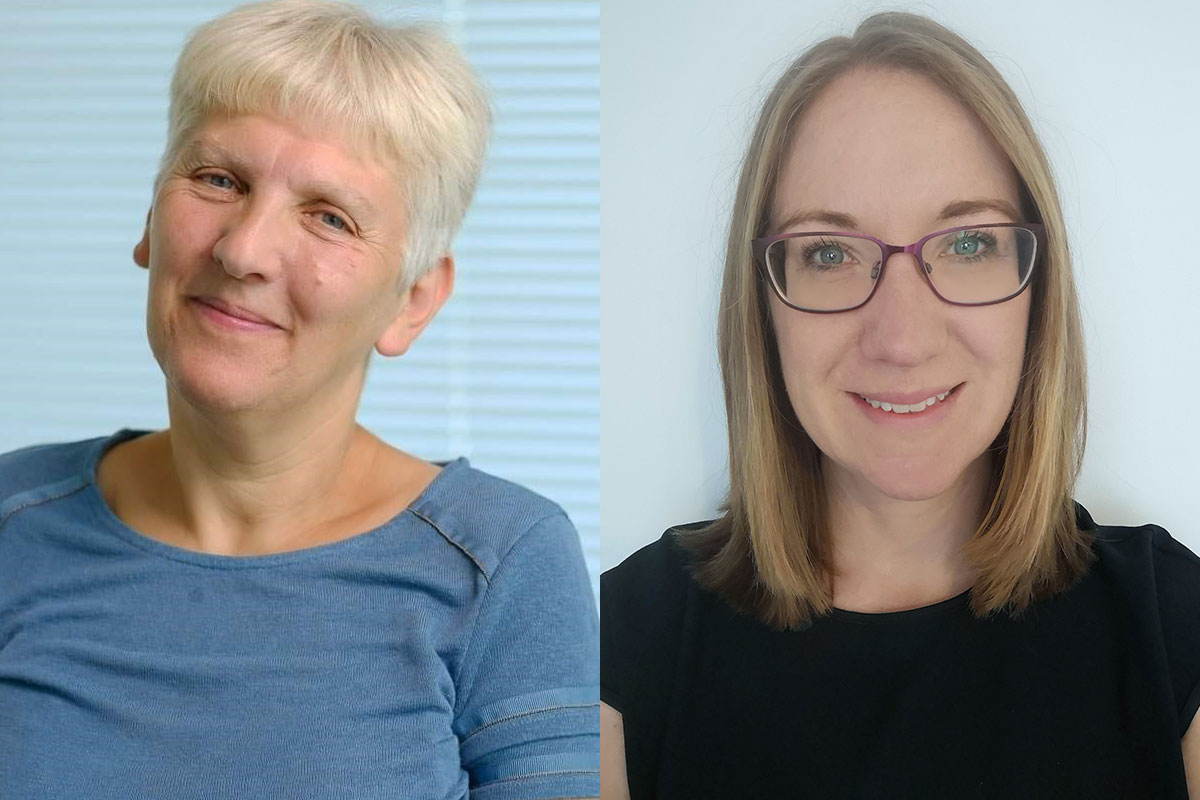You are viewing 1 of your 1 free articles
Why are hundreds of people still sleeping rough during the coronavirus pandemic?
The government has been quick to highlight its huge success in housing rough sleepers, but frontline organisations tell a different story. Lucie Heath reports. Pictures by Getty
Four weeks ago, housing secretary Robert Jenrick led the government’s daily coronavirus press conference. Addressing the nation, he triumphantly shared the news that his department had hit an important milestone in its response to COVID-19.
“Our plan to protect rough sleepers has resulted in over 90% being offered safe accommodation,” Mr Jenrick said. The message was clear: the government was on its way to hitting its goal of housing all rough sleepers during the pandemic.
However, talk to frontline homelessness workers and a different picture is painted. Inside Housing has spoken to organisations which say that the government’s mantra on rough sleeping numbers does not match what they are seeing on the streets.
Jon Glackin, a founder of Streets Kitchen, which provides food to rough sleepers in London, says there are still “well over 100” people without a roof over their head in the capital. Two weeks ago, the organisation served 40 people in Camden alone.
Billa Ahmed, co-founder of Homeless Aid UK, which feeds rough sleepers in multiple cities in the North, says volunteers have found between 60 and 90 rough sleepers on different nights in Manchester. He believes that the numbers are not that much lower than before the crisis.
It’s not only in major cities where rough sleeping still persists – smaller towns have also struggled to house everyone. Hayley Thomas, who runs volunteer group HCT Homeless in Newport, Wales, says there are still 10 rough sleepers in the area, compared with a pre-crisis average of 45. Andrew Crawford, who runs an outreach service in Barnsley, says last week there was evidence of five people sleeping rough in the town. In normal times, he would expect to see between five and 10.
While almost everybody Inside Housing has spoken to agreed there had been a significant reduction in rough sleeping during the pandemic, none thought this came close to 90%. So, why do the frontline workers’ accounts differ so much from what the housing secretary told us?
The Ministry of Housing, Communities and Local Government said its 90% figure refers to the number of rough sleepers known to local authorities at the beginning of the crisis, with the data being provided directly by councils. This is important for two reasons. First, it implies that the number of rough sleepers known to councils represents the actual number of people on the streets. Second, it suggests that the number of rough sleepers will not be added to during the pandemic.
“That figure is at best not entirely relevant and at worst it’s a little bit disingenuous,” says Diarmaid Ward, executive member for housing and development at Islington Council.
Mr Ward says the council has housed more than 100 rough sleepers alone during the pandemic, despite a January rough sleeping count of 22 rough sleepers.
MHCLG has said that the number is from data provided directly to them by councils since the beginning of the crisis.
The reasons for this disparity in figures are complex. Rough sleeping data has long been a point of contention. For years homelessness charities have voiced doubts about council estimates, which are often calculated by counting rough sleepers on a single night. In addition, there is already strong evidence the coronavirus pandemic is forcing a new wave of people onto the streets. This means pre-crisis estimates – whether accurate or not – are no longer a good measure for today’s reality.
“The flow of people onto the streets is not stemming – we’re still seeing new people every week,” says Mr Ward.
Mr Glackin agrees: “There’s a whole deluge of rough sleepers hitting the streets... even in normal times I would be surprised to see this many new faces.”
These new faces include individuals fleeing domestic abuse and those who were living privately in backpacker hostels but have been forced out as a result of closures or the individual losing their job, meaning they can no longer pay to stay.
Some local authorities offer accommodation only to ‘verified’ rough sleepers
Mr Glackin met a housekeeper in London who became homeless after losing her accommodation, which was tied to her job. Ms Thomas found a woman sleeping rough in Newport after being released from prison. Squatters are also finding themselves on the streets. A last-minute amendment to the government’s coronavirus eviction ban meant squats were excluded from the legislation.
“The fact that [the government] removed the emergency clause around squatting in the emergency legislation means that we’re seeing squatters evicted onto the street,” explains Jess Turtle, co-founder of the Museum of Homelessness. “I don’t think many people are aware – and within the context of a pandemic, it is unacceptable to make squatters street homeless.”
Many of those now sleeping rough are part of what has become known as the country’s ‘hidden homeless’. These are people who may flit between the street, sofa surfing, squats and other forms of temporary accommodation but are unknown to councils or publicly funded outreach services, and are therefore not included in official figures.
Carla Ecola, director of The Outside Project, which runs a night shelter in London for the LGBTIQ+ community, says many of the people her organisation supports fall into this category. As soon as businesses began closing, The Outside Project received many calls from people struggling financially.
Efforts to support the hidden homeless have been hampered by the fact that grassroots organisations, which do not typically receive funding from councils or the government, are often excluded from official funding programmes.
Organisations like The Outside Project, the Museum of Homelessness and Streets Kitchen are not able to refer individuals into the publicly funded hotel system. Instead they must direct people to their council or to commissioned outreach workers. There is also the issue of trust, as many street homeless people do not trust mainstream services.
“We can’t just say, ‘Oh, this person needs to come to you because we’re not part of the budget,’” Ms Ecola explains. “The budget is for people who are verified rough sleepers.”
The Greater London Authority has provided The Outside Project with funding to keep its hostel open 24/7 during the pandemic, however the space is not big enough to cope with demand. Ms Ecola and her team are now trying to raise money to open their own hotel to support the LGBTIQ+ community.
Similar issues have emerged outside of London. In Newport, Ms Thomas, who runs HCT Homeless, took it upon herself at the start of the crisis to house rough sleepers in a hotel after receiving a £10,000 donation. When the council found out, it ordered the rough sleepers to be moved to its hotel. According to Ms Thomas, five or six individuals ended up sleeping rough over the Easter weekend as a result of the confusion. Newport Council said it “appreciated that volunteers are well meaning”, but said some rough sleepers were placed in “inappropriate accommodation”.
Ms Thomas has since been warned by both the council and the police to stay away from the rough sleepers who she usually provides support to. Newport Council said this is to protect the health of both volunteers and rough sleepers. It said the charity’s trips into the city are “classed as non-essential” as a range of support services for rough sleepers are already being provided. Gwent Police said it engages with and encourages the public to follow government guidelines and will only take enforcement action as a last resort.
Concerns have also been raised that migrants are being excluded from emergency accommodation, despite the government ordering councils to support those with no recourse to public funds (NRPF). In a letter sent to Mr Jenrick, the Migrants’ Rights Network and the Public Interest Law Centre said there is no clear pathway for individuals and supporting organisations to refer people with NRPF for accommodation.
Some rough sleepers placed in B&Bs and hotels have been returning to the streets
Meanwhile, some of those who have been offered a hotel place are finding themselves back on the street.
“Those who have got complex issues with mental health, drugs, alcohol – they’re back on the street again,” explains Mr Ahmed. “They’ve gone in and they’ve been thrown out… Some of those that have got major mental health issues, they’re still on the streets because it’s not as easy as just putting them up into hotels.”
Understandably, many are struggling to live alone in a hotel room for weeks on end. Homelessness charities have previously raised concerns over the difficulties of providing support, especially to those with drug and alcohol addictions.
Government has acknowledged these concerns. At the start of May, it launched a taskforce to ensure those in emergency accommodation are given the support they need to not end up on the streets again. MHCLG said it had been a Herculean effort to house the people it has, and Dame Louise Casey, who is spearheading the taskforce, will “work closely with councils to understand the challenges they face”.
Again, this development was announced with great fanfare at the government’s daily press conference.
“This country is viewed around the world as having taken one of the most intensive and successful approaches to protecting rough sleepers during the pandemic,” said Mr Jenrick, describing the taskforce as the “second phase” of the government’s rough sleeping response.
The work from government on housing such large volumes of rough sleepers has been impressive and unprecedented. However, as it moves on to phase two, more support is needed to help grassroots organisations, especially those supporting marginalised groups, which are left responding to the crisis on the ground.
Homelessness in Britain is at one of the most important crossroads in living memory. While many are hopeful that the coronavirus pandemic will act as a catalyst for change in policy, others fear that a crisis of an unparalleled scale could be around the corner.
If the government is to achieve the former and not the latter, it must move quickly to address the issues that have led to hundreds remaining on the streets and to stem the flow of many more joining them during the crisis and beyond.
More on coronavirus
To see all our coronavirus coverage to date – including the latest news, advice to providers, comment and analysis – use the link below.
Sign up for our daily newsletter
Already have an account? Click here to manage your newsletters
